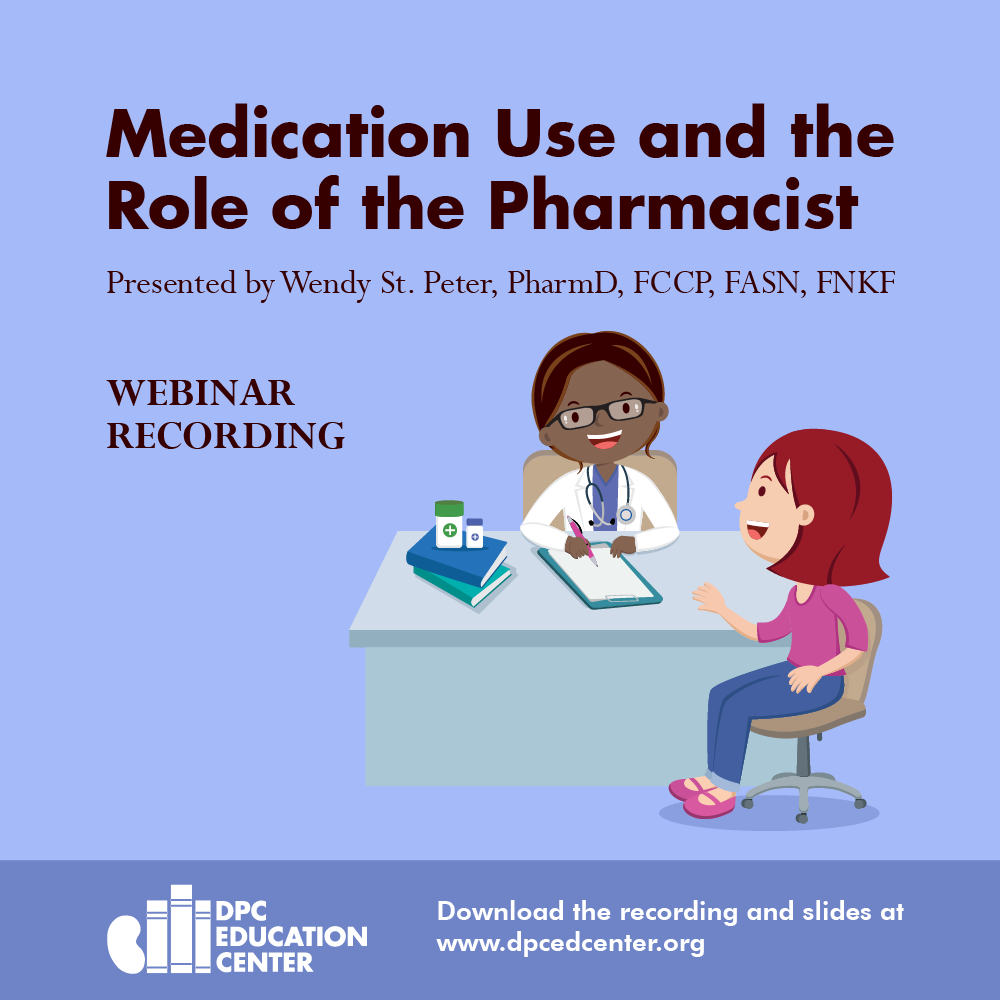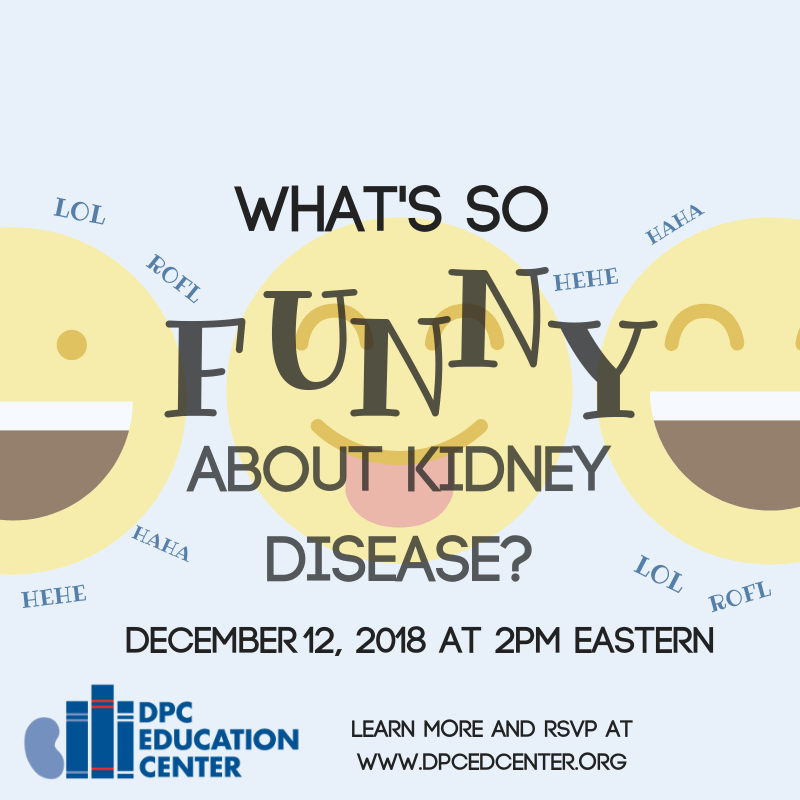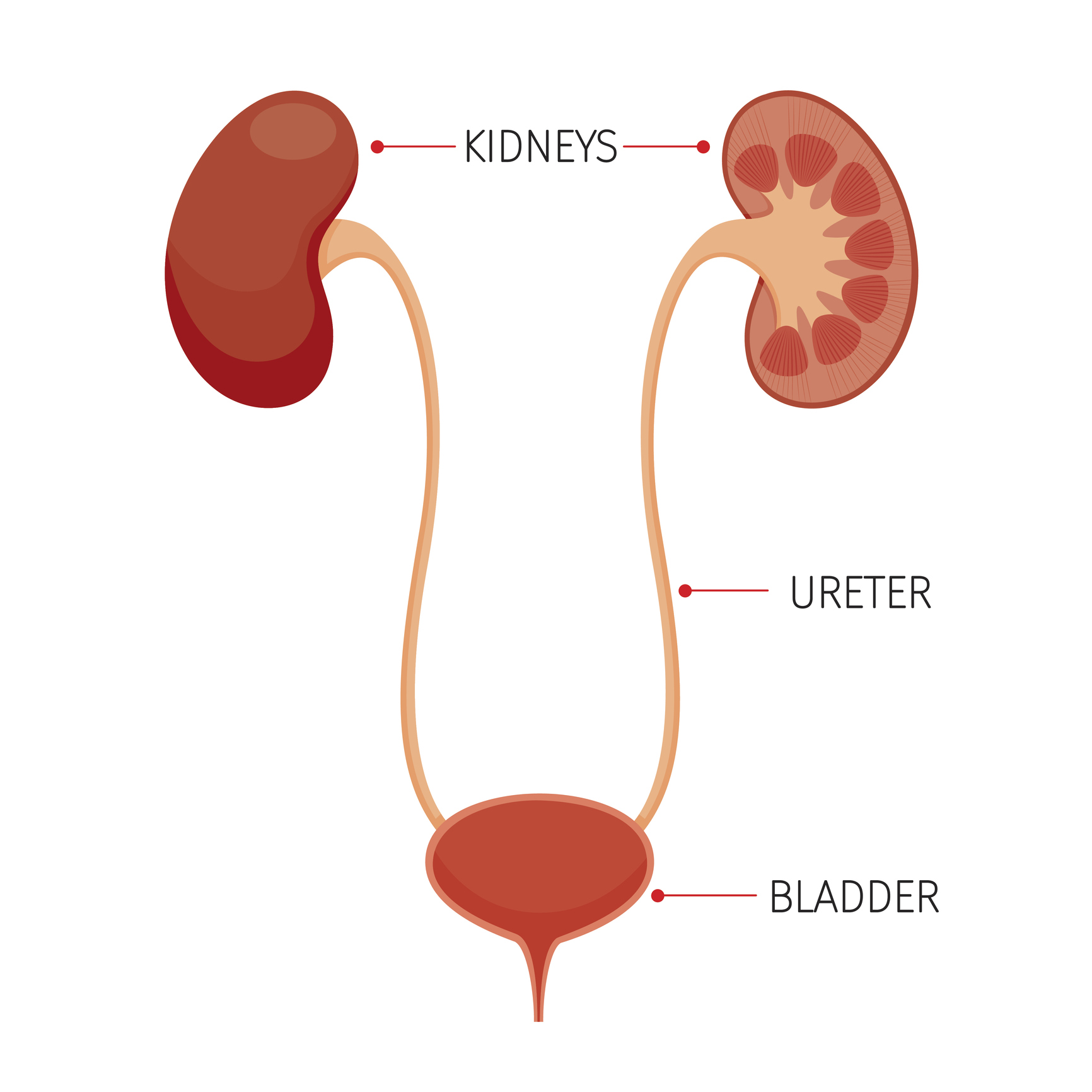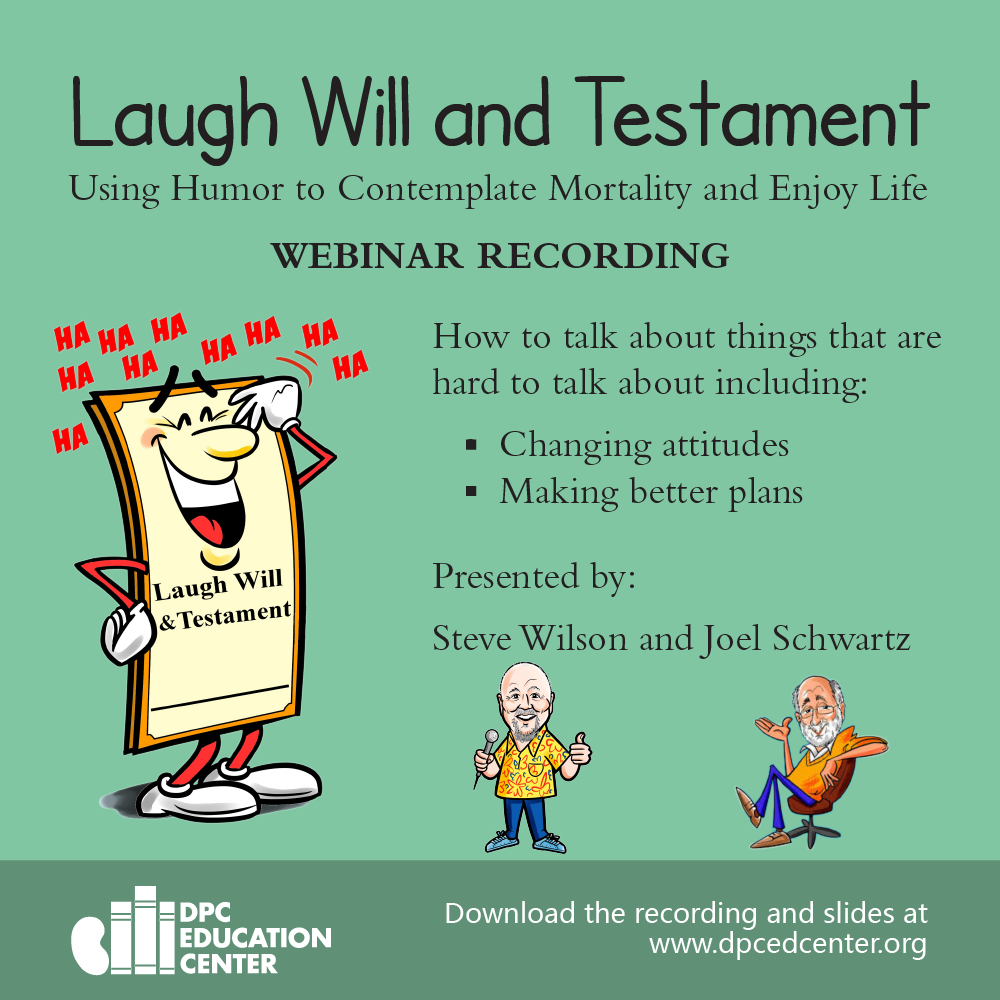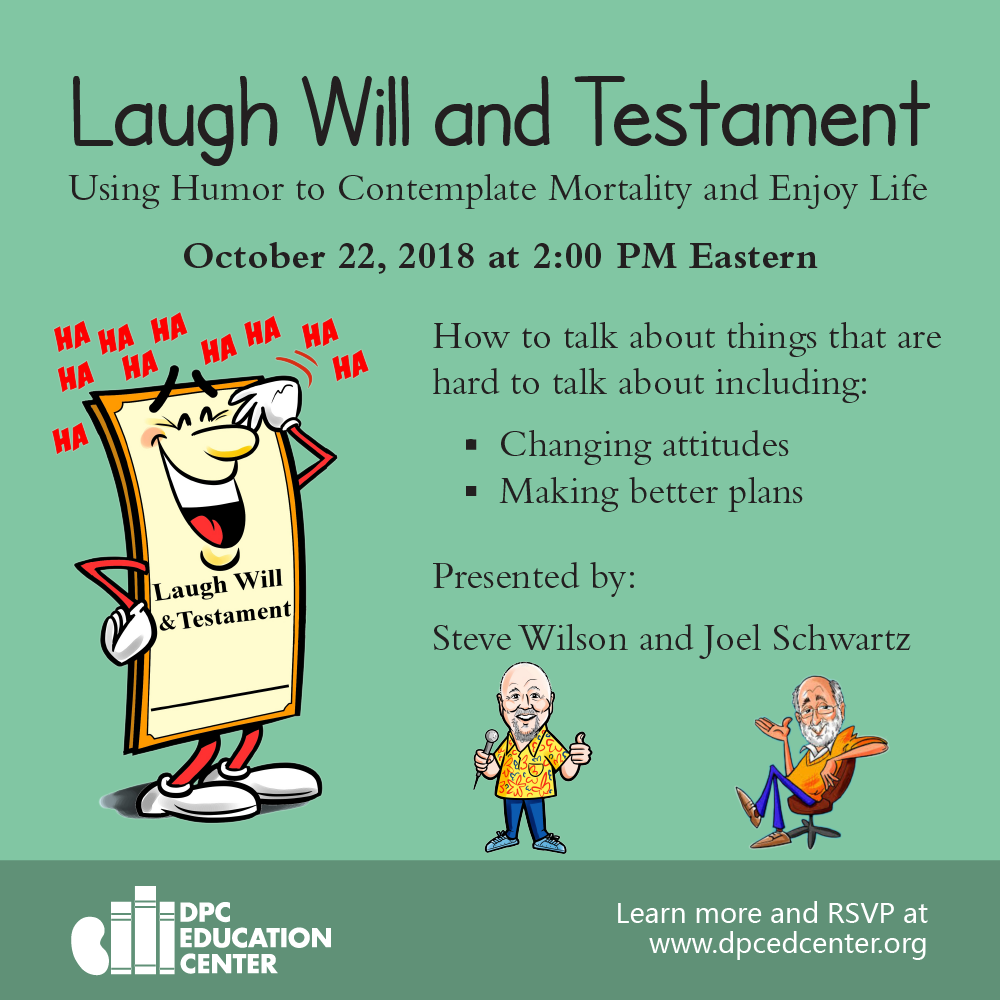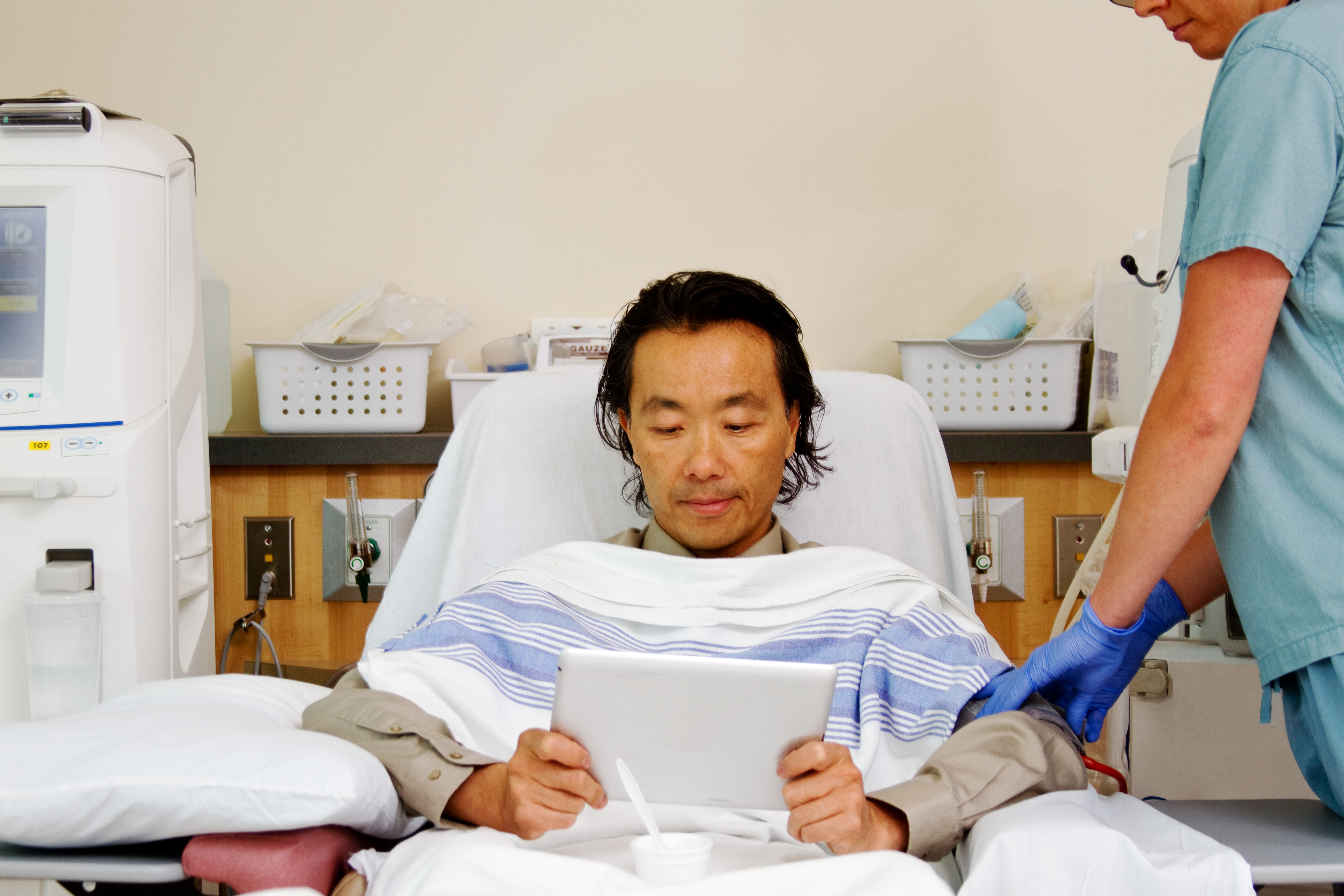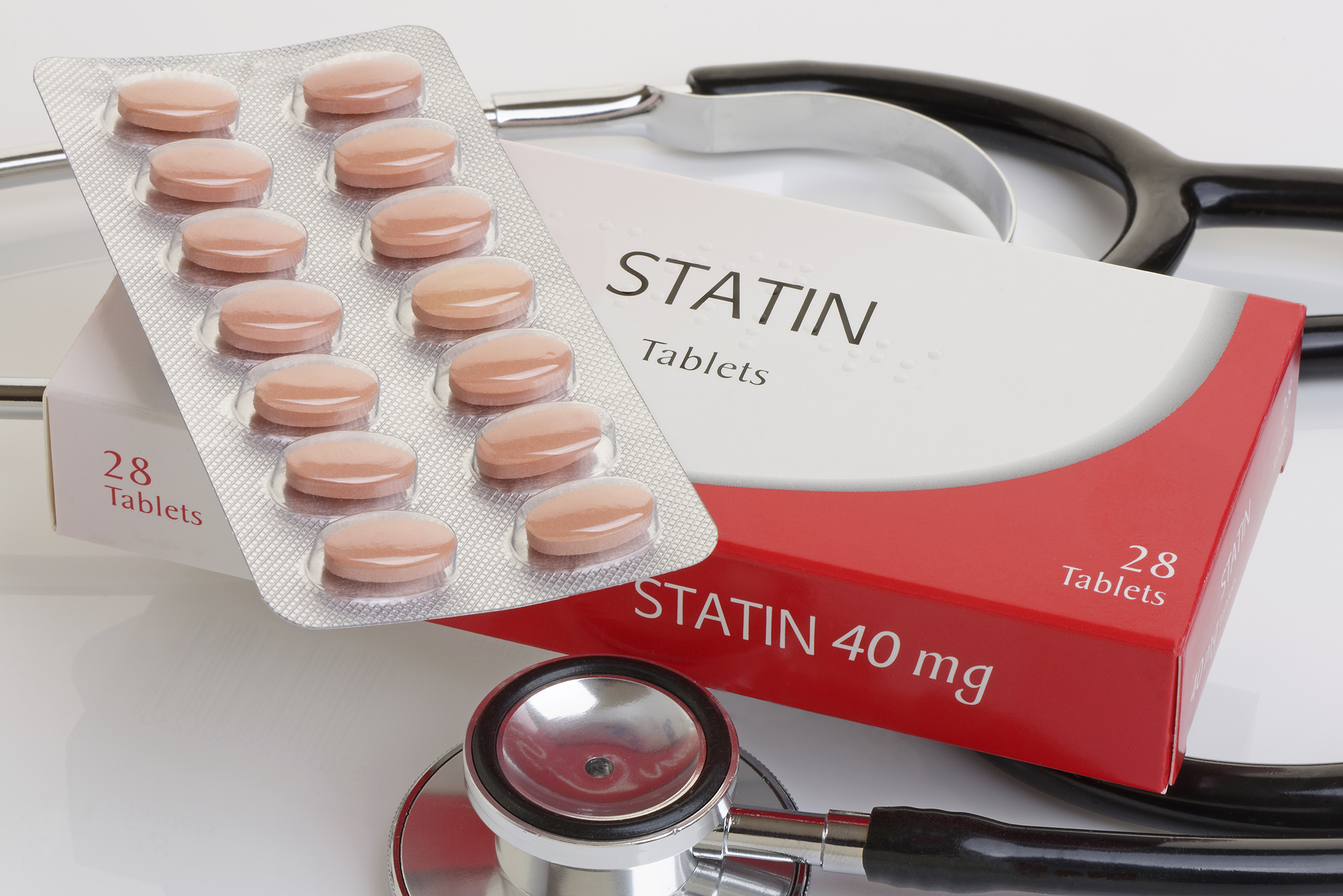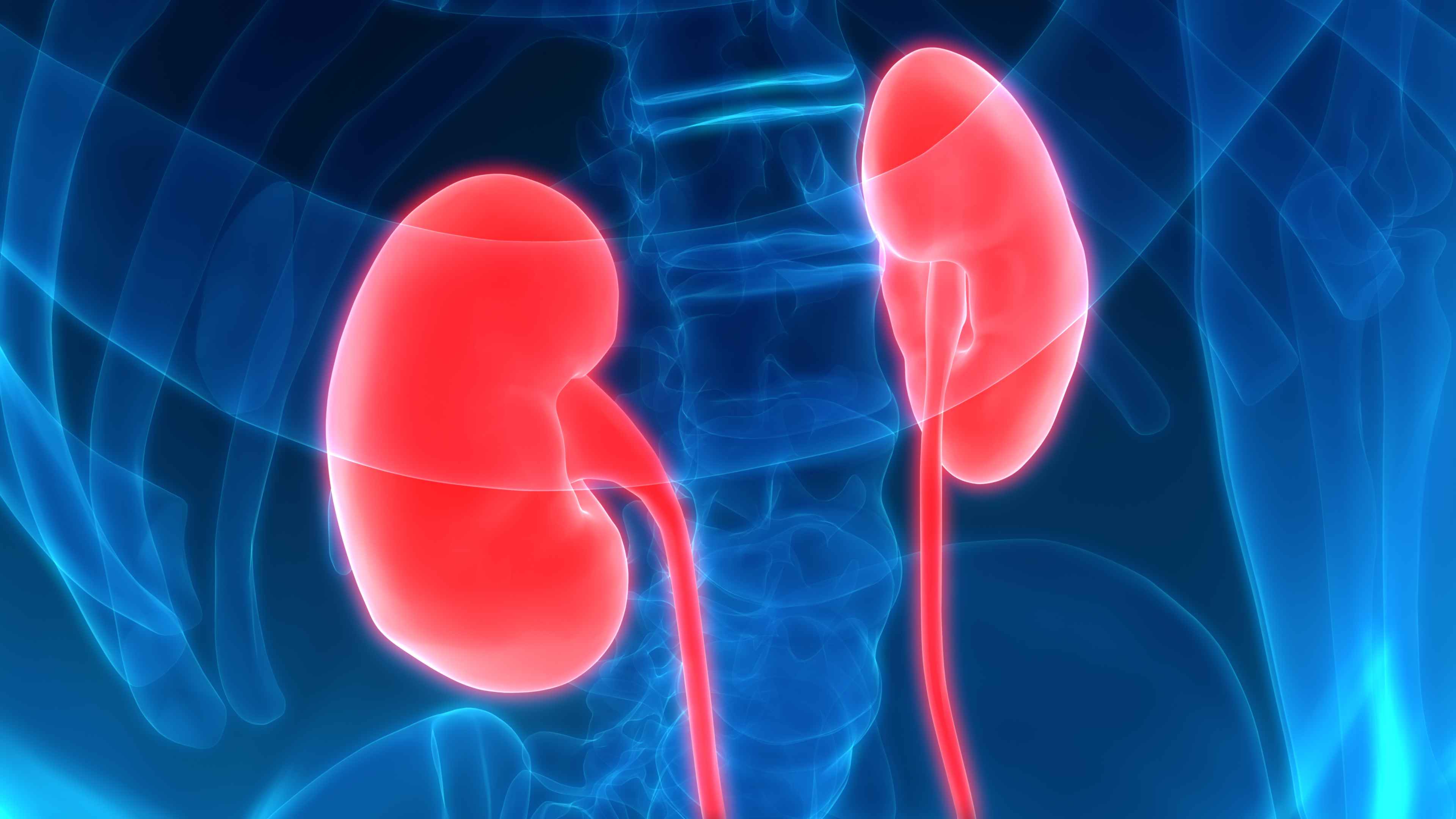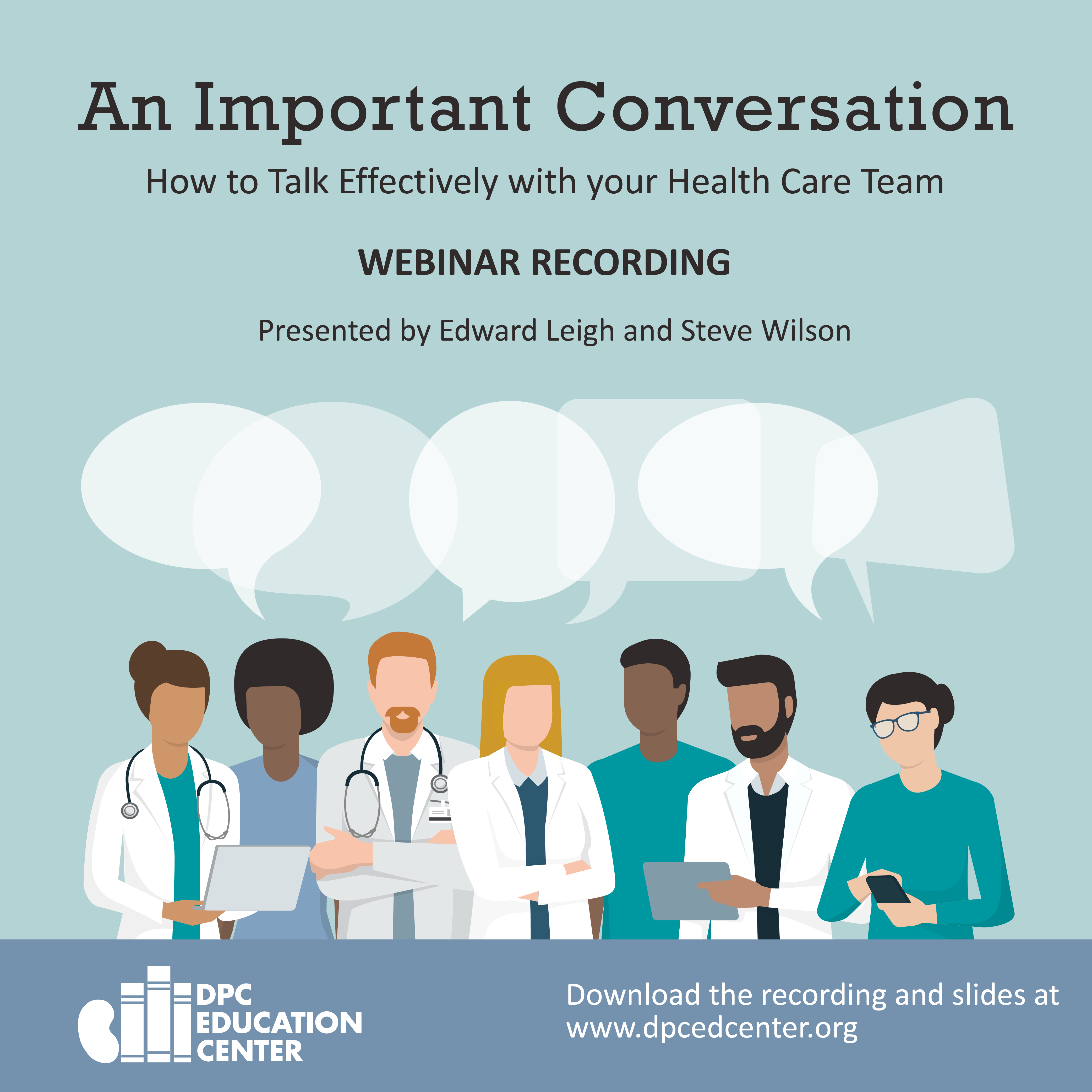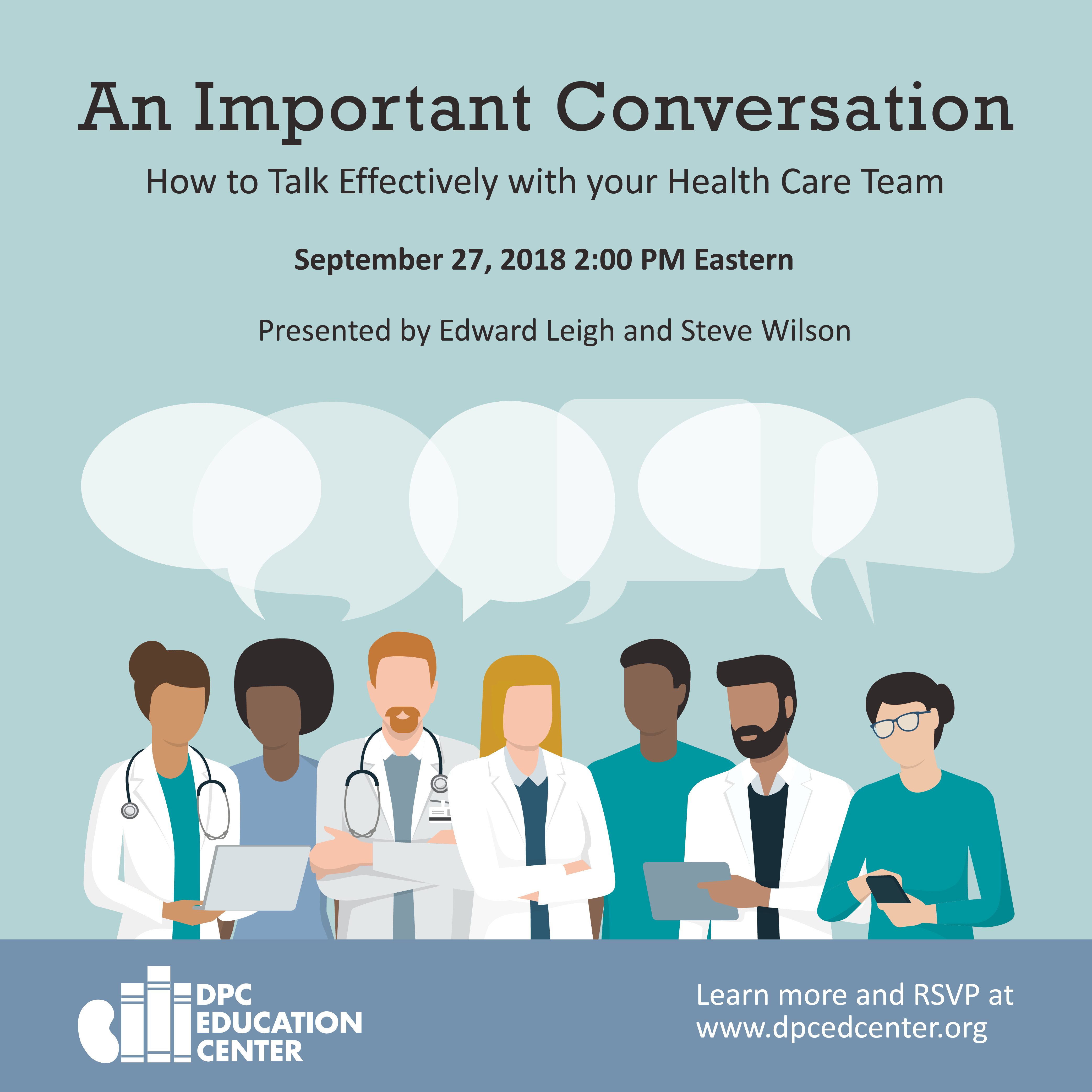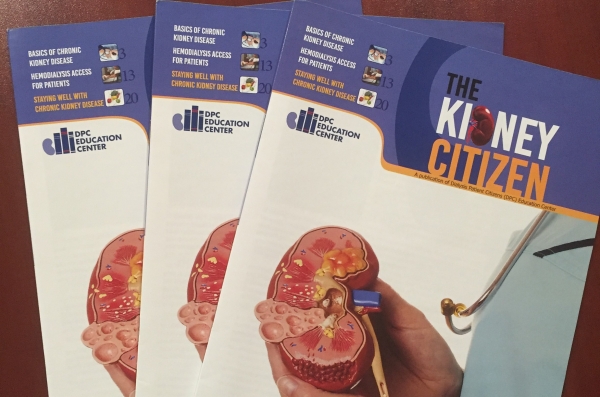News & Events
Discover new information and educational offerings that we provide. Explore our newsletters, blogs and upcoming webinars/conference calls.
Contents:
Medication Use and the Role of the Pharmacist Recording and Slides
If you were unable to attend our last education seminar, the recording is now available! Please see the video and links below for details. We want to keep getting better. Please help us by sharing your comments and suggestions here: Webinar Review View the Recording: Download the slides. Additional Videos Mentioned During Presentation: Patients Stories of Pharmacists' Care Expert Shares Key Steps in Staying Healthy with Kidney Disease Pharmacist Discusses Medications for Kidney Disease
What’s So Funny About Kidney Disease?
Download the flier Have you giggled or laughed out loud today? Or yesterday? Or last week? Laughter is considered one of the best medicines we have, and we want you to start seeing its benefits! Join us to learn more about the health benefits of laughter and how to find humor in your life as you live with chronic kidney disease. Find out when Steve Wilson, a clinical psychologist and founder of the World Laughter Tour, interviews Karyn Buxman, RN. When: December 12, 2018 at 2:00 PM ET, 1:00 PM CT, 12:00 PM MT, 11:00 AM PT What: DPC Education Center Webinar Register: www.dpcedcenter.org/education-call-rsvp
CDC Advises Patients and Their Families to Be Antibiotics Aware
People with chronic medical conditions, such as kidney disease, are at a higher risk of getting an infection, which can lead to sepsis. Antibiotics are life-saving drugs and critical tools for treating infections. The Centers for Disease Control and Prevention (CDC) is advising patients and their families to use antibiotics only when necessary to further reduce antibiotic resistance, the spread of superbugs, and protect patients from side effects from antibiotics. During U.S. Antibiotic Awareness Week and throughout the year, CDC promotes Be Antibiotics Aware, an educational effort to raise awareness about the importance of safe antibiotic use. The Be Antibiotics Aware initiative educates the public about when antibiotics are needed, when they are not, how to take antibiotics appropriately, and [...]
Bladder Health and Chronic Kidney Disease
November is Bladder Health Month. The bladder is part of the urinary system, which also includes the kidneys. Taking care of the bladder is important for individuals with kidney disease as infections in the bladder can spread to the kidneys, which can cause permanent damage to the kidneys. Additionally, diabetes, which is one of the leading causes of chronic kidney disease, can contribute towards bladder problems. The National Institute of Health has some resources on how the bladder changes as we age and ways to keep your bladder healthy. Check out the resources below: Bladder Health for Older Adults – Discusses how the bladder changes as we age, common bladder problems, conditions that affect bladder [...]
Everything You Need to Know About Beating the Holiday Blues and Post-Holiday Let Down
By Steve Wilson (download PDF) Emotionally Loaded Months You probably can guess why October, November and December are called the “emotionally loaded” quarter of the year. The post-holiday period has emotional perils, too, but probably not what you think they are. What can you do to have an easier time of it all? To do a really good job of managing holiday stresses, you will need some sense of control, some sense of predictability, some optimism, and some solid practical strategies. The information in this article will help you be smarter about holiday stress, so you can beat it before it beats you! You may not be able to control everything that’s about to happen, but [...]
Laugh Will and Testament: Using Humor to Contemplate Mortality and Enjoy Life Recording and Slides
If you were unable to attend our last education seminar, the recording is now available! Please see the video and links below for details. We want to keep getting better. Please help us by sharing your comments and suggestions here: Webinar Review Download the handouts. Download the slides. Tears study article mentioned during the presentation. View the Recording:
Bad News for Individuals with Kidney Disease That Use Marijuana
Individuals with chronic kidney disease (CKD) that use marijuana may lose function of their kidneys more rapidly than non-users, as found in one study. Researchers compared the mean annual rate of decline in estimated glomerular filtration rate (eGFR) among the two groups of participants. The eGFR was 3.22 mL/min/1.73 m2 among marijuana users and 1.42 mL/min/1.73 m2 among non-users. Glomerular filtration rate (GFR) measures kidney function effectiveness by documenting how well the kidneys are filtering the blood. Scientists did not observe a decline in kidney function among individuals that use marijuana and do not have CKD. Read the full article.
RSVP for Next Month’s Webinar – Medication Use and the Role of the Pharmacist
Presented by: Wendy St. Peter, PharmD, FCCP, FASN, FNKF, Professor at the College of Pharmacy, University of Minnesota People with chronic kidney disease (CKD) often times… have other medical conditions require many medicines have several doctors that prescribe medicines go to more than one pharmacy to get medicines It can be hard for patients, doctors and other healthcare professionals to keep track of all the medicines their patients with CKD take. The issues above can lead to medication therapy problems (MTPs). MTPs can…. reduce the good effects of medicines lead to safety issues (e.g., bad reaction to a medicine) result in non-adherence to medicines In this webinar, Dr. St. Peter will discuss: how pharmacists can help [...]
Free Tools for Decreasing Healthcare-Based Infections
Dialysis patients have an increased risk for getting infections. A set of free, downloadable PDFs are available for medical professionals to use to help reduce healthcare-based infections. The tool library is organized by different situations and settings one encounters in the healthcare setting. Each PDF is populated with a checklist of yes/no questions and observation boxes to ensure proper procedures are followed and monitored in each situation. The tools are designed to serve as a quick reference for infection prevention deficiencies and allow corrective action to promptly be taken to better protect patients. The tools were developed by the Association for Professionals in Infection Control and Epidemiology (APIC) and the Centers for Disease Control and [...]
RSVP for Monday’s Webinar – Laugh Will and Testament: Using Humor to Contemplate Mortality and Enjoy Life
Join mental health experts Joel Schwartz and Steve Wilson as they discuss how to talk about things that are difficult to talk about including: Changing attitudes Making better plans When: October 22, 2018 at 2:00 PM What: DPC Education Center Webinar
Positive Psychology Exercises May Help Dialysis Patients Combat Depression
Dialysis patients that participated in technology-based positive psychology exercises reported “significantly” lower symptoms of depression and saw improvements in “quality of life, emotional well-being, physical vigor and social interactions,” as published by one study. The exercises focused on building on the patient’s “personal strengths, cultivating gratitude and using positive reappraisal to reinterpret events.” The findings may provide alternatives for dialysis patients who are looking for ways to manage their depression. Depression is the most common psychiatric illness among individuals with kidney failure, with occurrence ranging from 22.8 to 39.3 percent as reported by a group of researchers. Patients in the study spent 20-30 minutes more than three times a week doing positive psychology exercises on [...]
Taking Statins Before and After Kidney Failure May Lead to Better Outcomes for Dialysis Patients
Individuals with chronic kidney disease (CKD) that took statins at least six months before and after kidney failure had a 28 percent lower risk of death than patients who stopped taking statins after kidney failure, as found in one study. In addition, these individuals had an 18 percent lower risk of cardiovascular-related death when compared to the statin discontinuers. The better cardiovascular outcomes were not observed in studies where individuals with CKD started taking statins after kidney failure, pointing to the importance of early CKD detection and taking statins before and after kidney failure. Statins are drugs taken to lower the risk for cardiovascular disease (e.g., coronary heart disease, stroke, congenital heart defects, peripheral artery [...]
Over $2 Million to be Awarded to Innovative Dialysis Solutions
The US Department of Health and Human Services (HHS) and the American Society of Nephrology (ASN) are awarding monetary prizes to people that come up with innovative solutions to prevent, diagnose, and treat kidney failure. Anyone is welcome to enter the competition, which is called Kidney Innovation Accelerator (KidneyX), and it is broken up into two phases. The hope is that the contest will generate and expedite new technologies, concepts, or expertise that have not been introduced in the realm of chronic kidney disease. Contest Deadlines and Prize Details Submissions will be accepted from October 2018 until February 2019 for phase one and should focus on innovations that imitate kidney functions, enhance patient wellbeing, improve [...]
Communicating with your Healthcare Team: Top Tips to Partner with Professionals!
By Edward Leigh, MA and Steve Wilson, MA If you missed this month’s webinar on How to Talk Effectively with your Health Care Team, the recording is now available! In addition, below is a handout to accompany the presentation. Medical Resume This is a 1 - 2-page document summarizing all your pertinent medical information, including all the items listed below. Have this resume in an electronic file so you can easily update the document. List of all your medications, including names, dosages, and how often they are taken. Be sure to include vitamins / herbs, ear / eye drops, medications put directly on the skin and nasal medications. Many medical offices request you bring the [...]
An Important Conversation: How to Talk Effectively with your Health Care Team – Recording and Slides
If you were unable to attend this week's education seminar, the recording is now available! Please see the video and presentation links below for details. We want to keep getting better. Please help us by sharing your comments and suggestions here:Webinar Review View the Recording: Download the slides. Download the 2-page summary handout.
Would You Accept a Kidney from Someone Who Died of a Drug Overdose?
The opioid crisis in the US has increased the availability of organs for people looking for a transplant due to drug overdose deaths. As a result, someone in need of a kidney transplant might face a dilemma on whether to accept a kidney in this type of circumstance. One of the potential concerns relates to the organ donor being labeled as having an “increased risk” for contracting hepatitis B, hepatitis C, or HIV, which may not be able to be detected if contracted a week before his/her death. However, the risk is relatively small (less than a 1-in-1,000 chance), and a recent analysis found that standard-risk kidneys tend to perform worse on average than the [...]
RSVP for Thursday’s Webinar – An Important Conversation: How to Talk Effectively with your Health Care Team
Join Steve Wilson, psychologist, as he talks to Edward Leigh, a health educator and the founder and director of The Center for Healthcare Communication. Steve will ask Edward important questions that will help you as you partner with your healthcare team for quality care and quality of life. Through an engaging and energetic conversation, learn how to: Build a positive relationship Communicate clearly Ask helpful questions Prepare effectively for each visit Develop your own “medical resume” Find helpful health web sites When: September 27, 2018 at 2:00 PM What: DPC Ed Center Webinar Register: www.dpcedcenter.org/education-call-rsvp About the Presenters: Edward Leigh is the Founder & Director of The Center for Healthcare Communication. He helps patients communicate with healthcare professionals [...]
Mindfulness May Help Dialysis Patients Decrease Pain
An article published by Medical News Today reports that mindfulness may be an effective way for some people to decrease chronic pain, and mindfulness meditation may decrease pain more effectively than some standard treatments. The findings may provide alternatives for dialysis patients who are looking for ways to manage their pain. Mindfulness is the state of an individual being present and aware of their actions and surroundings in a way that is not exceedingly reactive or anxious. Some people have a predisposition to being more mindful, and thus report lower levels of pain on average. However, mindfulness can be increased with training. Chronic pain affects over 25 million people in the US, and one study [...]
September is Sepsis Awareness Month
Sepsis is a life-threatening medical condition in which the body has a severe response to an infection. Sepsis can result in tissue damage, organ failure and death. Sepsis can happen to anyone. People with chronic medical conditions, such as kidney disease, are at a higher risk of getting an infection, which can lead to sepsis. Check out our webinar from earlier this year to learn more about the relationship of sepsis to kidney disease, the warning signs, risks, and ways to prevent sepsis. Additional Resources National Institute on Health page on sepsis Centers for Disease Control and Prevention page on sepsis
US Department of Labor Protects Living Organ Donors
The US Department of Labor's Wage and Hour Division published an opinion letter last week stating that surgery for people who donate an organ qualifies as a “serious health condition” under the Family and Medical Leave Act (FMLA). The letter may provide reassurance to individuals that are considering donating a kidney, but are concerned about losing their jobs due to being away for surgery or post-surgery care. About the Family and Medical Leave Act The FMLA allows “eligible employees of covered employers” the ability to take 12 workweeks of unpaid leave during a 12-month period for certain family and medical conditions. In addition, FMLA ensures eligible employees continue to receive the same health insurance coverage [...]

